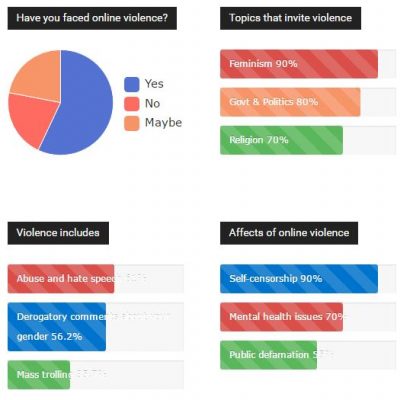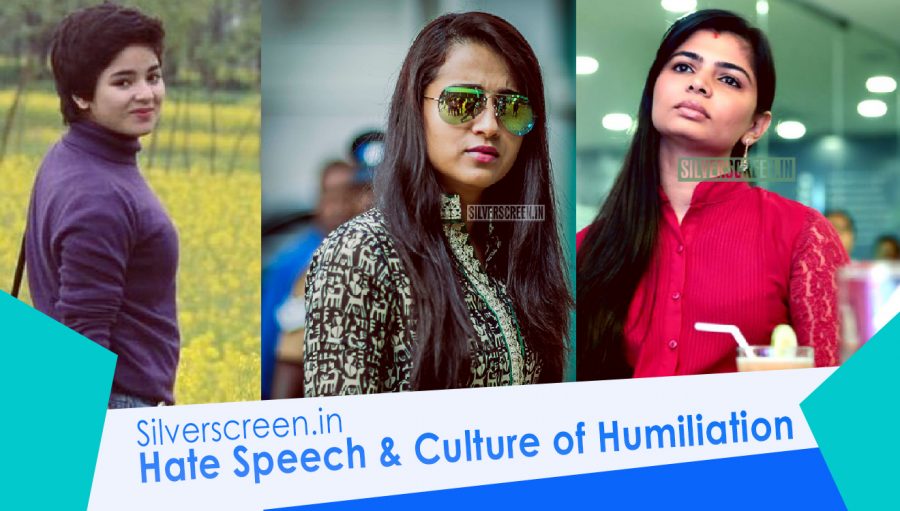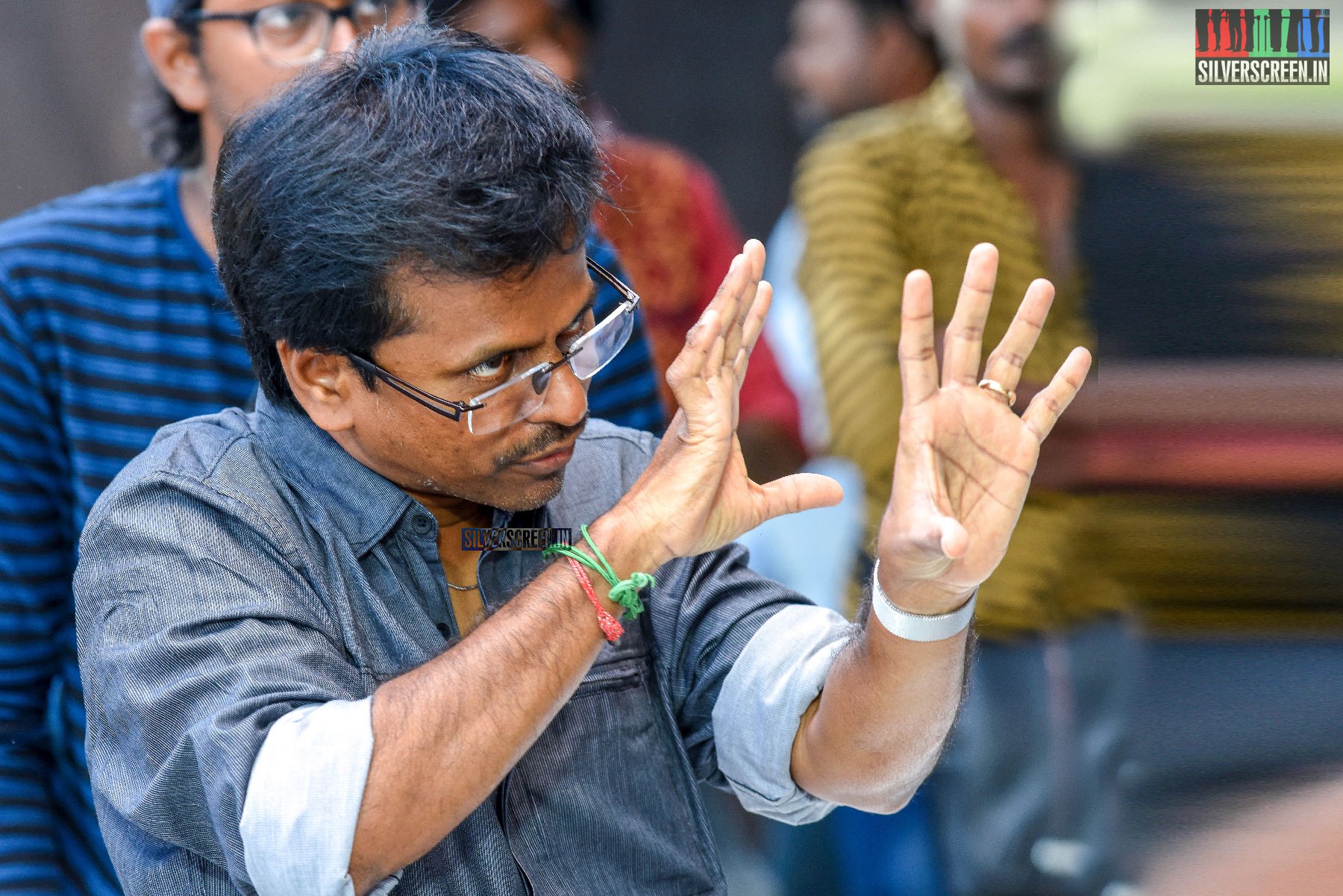The current big controversy on Twitter India, is Gurmehar Kaur. A student of Lady Shriram College, Delhi, Gurmehar made a video last year in which she talks about her father – who died in battle in 1999, during the Indo-Pak Kargil war, and explains her reasons for why violence is never the answer. In a moving moment, she says “Pakistan did not kill my father. War did.”
The video, and her statement was recently resurrected after an attack by members of right-wing student union ABVP on Ramjas college and its students.
Needless to say, Gurmehar’s statement about Pakistan did not sit well with our leaders, celebrities, sports-persons, and every Twitter user determined to take offense. She was attacked viciously, often with rape threats, and her morals, her parentage, her choices, her age – everything questioned. She was called an “anti-national”, her core message of peace and non-violence, drowned by the jingoistic chest thumping.
***
One of the contenders for Tamil Cinema’s Lady Superstar – Trisha Krishnan – had an active, engaged presence on Twitter. The star used her Twitter account to talk to fans, promote her movies, and speak out on issues she felt strongly about.
Until the jallikattu controversy took over Chennai, and the Internet.
PETA is one of the organisations asking for a ban on jallikattu. Trisha has been a long time supporter of PETA. Hence, Trisha asked for a ban on jallikattu. Q.E.D, according to trolls online. Trisha was attacked, the comments and replies getting more and more vile, more sexist and abusive.
There was also an alleged hacking, through which anonymous attackers gained control of her Twitter account. And so Trisha shut down her Twitter presence, temporarily. Although she is now back and responding to fans’ messages, there is a conspicuous gap – an absence of tweets between the 14th of Jan and 14th of Feb.
***
Zaira Wasim is unlike a lot of other Kashmiri teenage girls. She starred in Dangal, Aamir Khan’s film on wrestling champions Geeta Kumari Phogat and Babita Phogat, and their rise to sporting glory. Where most other Kashmiri girls try to negotiate life between Indian Army and Islamic Patriarchy, Zaira became a star.
The J&K Chief Minister – Mehabooba Mufti – met Zaira and was all praise for her. She called Zaira a role-model for other young Kashmiri girls. And so, of course, she had to pay a price.
Trolls attacked Zaira, her religion, her choice to act in the film, and before long it turned ugly. Zaira issued a public apology via Facebook, which only seemed to fuel the fires further. Newspapers picked up the apology, other stars got into the act. And Zaira, all of 16, got her first taste of being a woman and a celebrity. She deleted her Facebook post, asked to be left in peace, and disappeared from the public eye.
***
Chinmayi Sripada, the singer, was attacked in 2012. The Sri Lankan war was coming to a very bloody, and horrifying, end. Fans of Chinmayi asked her to support the Tamil cause, but Chinmayi perhaps wanted to stay out of politics. Trolls went after Chinmayi, and her mother, with a vehemence usually reserved for India-Pakistan cricket matches. Rape threats, death threats, and more. Chinmayi went to the police, and one of the earliest cases under Section 66A (sending “offensive” messages) was filed against 6 persons.
***
This is all too common.
Trolls on Twitter, Facebook, and other platforms, perhaps encouraged by relative anonymity and/or a sense of entitlement, attack celebrities. While men and women both come under fire, the trolling becomes extremely personal, sexual, and sexist – when it comes to women.
It’s a Culture of Humiliation, according to Monica Lewinsky.
The White House intern during the Bill Clinton administration knows it only too well.
When the affair between Clinton and Lewinsky became public, the former president had to contend with suppressed giggles, sneers, and a court case through which to blatantly lie, commit perjury. Monica Lewinsky had to face humiliation, comments on her morality, social exclusion, continuous paparazzi hounding and, more humiliation. Online and offline, the attacks on her were personal, misogynistic, sexist, and sexual. It’s easy to dismiss the threats and comments as something that has no “real world” effect. But these affect deeply. As Ashley Judd, the American actress says in a TED Talk, “Our mental health, our emotional well-being are so gravely affected because the threat of violence is experienced neurobiologically as violence. The cortisol shoots up, the limbic system gets fired, we lose productivity at work.”
It’s not just productivity. When the Gamergate controversy hit, women were continuously attacked by anonymous men. High profile game developers, journalists and feminists – all women – were threatened with rape, mutilation, and death. Their private information – including phone numbers, residential addresses and employment information was posted online and publicly shared – in what is called Doxing. This caused hordes of men to land up at various women’s houses and physically threaten them.
Women who were attacked had to leave homes, cities, lose their jobs and go into severe trauma and shock, the effects of which will probably last them their entire lives.
A research by the portal Feminism in India found that of 500 high-profile urban respondents (mostly women, and a few gender-non-conforming/trans persons), at least 57% had faced violence online, in the form of hate speech, assault, or rape threats. As a direct result of this, they would self-censor, and many had experienced mental health issues.

***
At the base of this culture of humiliation is a perceived loss to masculinity, male pride.
It is no surprise that nationalism and pride in one’s culture/country is often portrayed as masculine superiority. To protect something – women, cows, land, pride, culture, treasure – is the ultimate goal of Mankind. This is especially true of a deeply patriarchal society like India. The Independence struggle was seen (and is constantly painted as) a struggle for Indian men to reassert their manhood. During partition, Muslim women were raped by Hindu nationalists as payback for the “rape of India”. Hindu women who happened to be married to Muslim families were either killed – to save India’s honour – or forcefully married to Indian men in an attempt to bring them back “home”.
Gandhi’s pacifism and non-violence was often portrayed as feminine. By “giving in” to Western powers, Gandhi was weak, and therefore an effeminate man. Nathuram Godse, then, saw himself as the man who restored India’s masculinity. He is said to have commented, when he shot Gandhi, that there were still men left in India.
Women’s bodies are sites of honour, even as femininity is seen as weak and ineffective.
***
This is especially clear in Gurmehar’s and Trisha’s case.
Political parties and celebrities commented on the absence of a “strong male, father figure” in Gurmehar’s life, and blamed her supposed anti nationalism on this. By calling her a girl, her opinions and viewpoints are trivialised, further iterating the need for a “masculine” guardian.
Jallikattu is a traditional sport in which young men “prove” their manliness. Jallikattu by extension became Tamil culture’s sign of Masculinity. Tamil pride was at stake. Trisha was therefore against Tamil culture. And so she was cursed with everything that was “not Tamil culture”. Vulgar, sexist posters claimed Trisha had died because of AIDS. Her choice of films were questioned, her on-screen roles came under criticism.
Similarly, when Neha Dhupia commented on the Mumbai rains and the lack of governance, right-wing trolls took offense. After all, Modi was the man among men, his 56-inch chest was seen as bringing masculine pride back to India. Any attack on government was an attack on Men.
***
Recommended
Shaming women into silence is easy on Twitter. The accessibility, especially of stars who use the platform for promotion and audience engagement, perhaps creates the perception that they are “fair game” for anyone. Troll farms – a group of people who create multiple, anonymous accounts to jointly attack a target, make blocking and reporting ineffective. When one account goes down, the others take over.
Not that this is new. Women celebrities have always been under fire – gossip, scandal, paparazzi attacks, “revenge porn”, leaked nude photos, letters and columns asking for their life – all these have been around. Technology enhances culture.
In the first book of the Greek epic Odyssey, Telemachus rebukes his mother, Penelope, for daring to enter the room of men and asking the bard to sing a happier song. Telemachus, son of Odysseus, says, “So go to your quarters now, and attend to your own duties at loom and spindle, and order your maids about their tasks: let men worry about such things, and I especially, since I hold the authority in this house.”
Commenting on this, Mary Beard, an English classicist and scholar, says:
“[i]t’s a nice demonstration that right where written evidence for Western culture starts, women’s voices are not being heard in the public sphere; more than that, as Homer has it, an integral part of growing up, as a man, is learning to take control of public utterance and to silence the female of the species.”
Ultimately, human culture and society deems women as dispensable, and whatever “larger” politics, women are merely collateral damage.
*****



